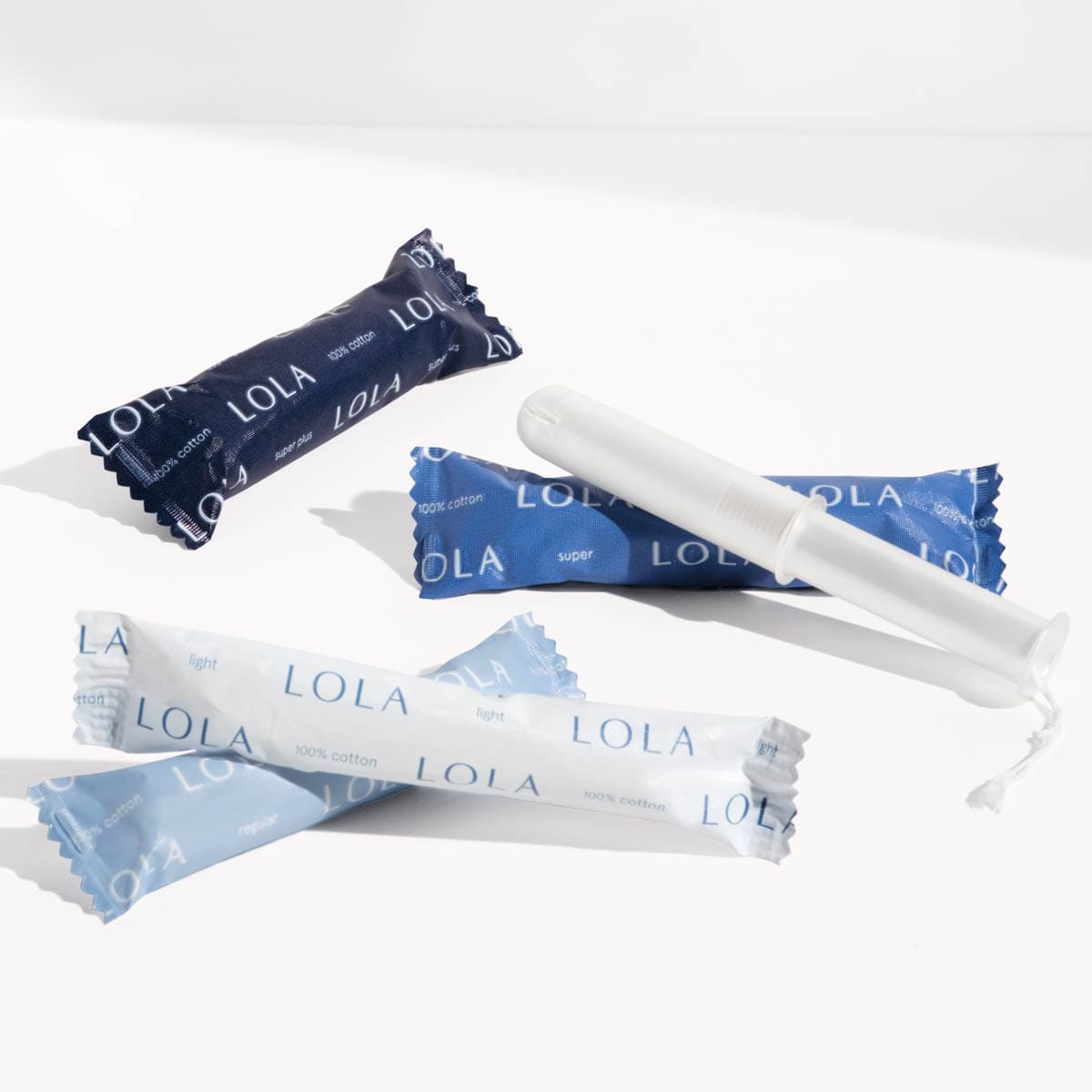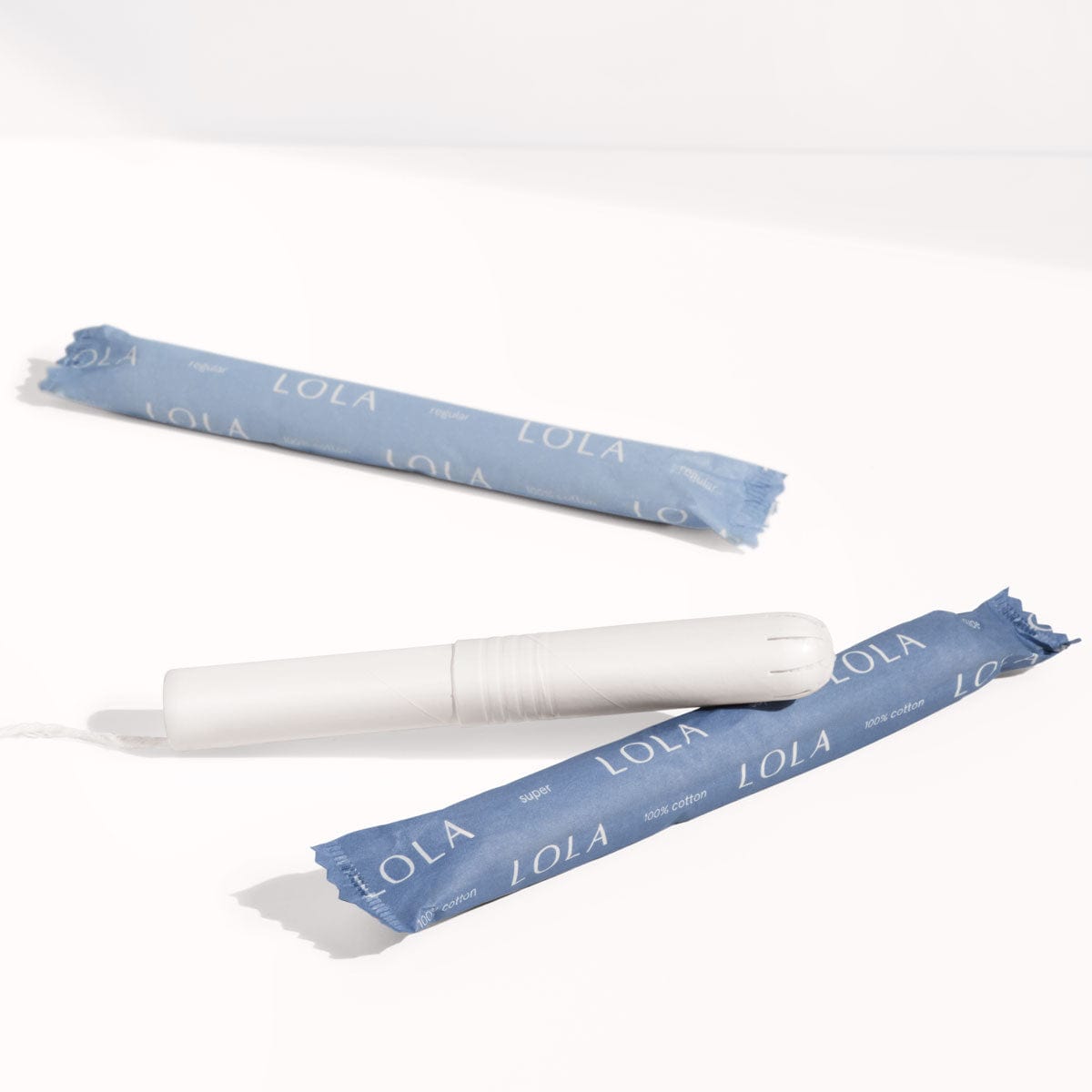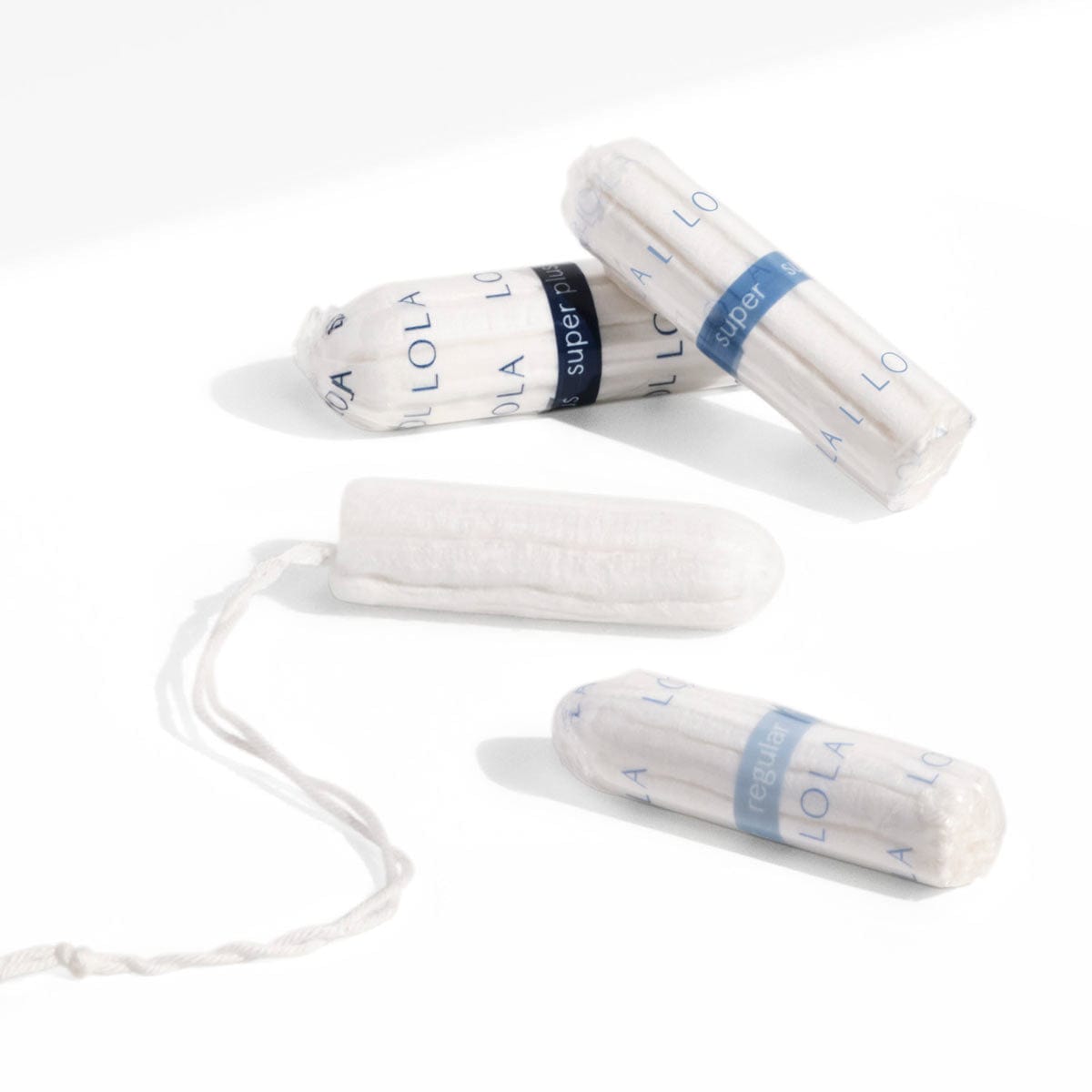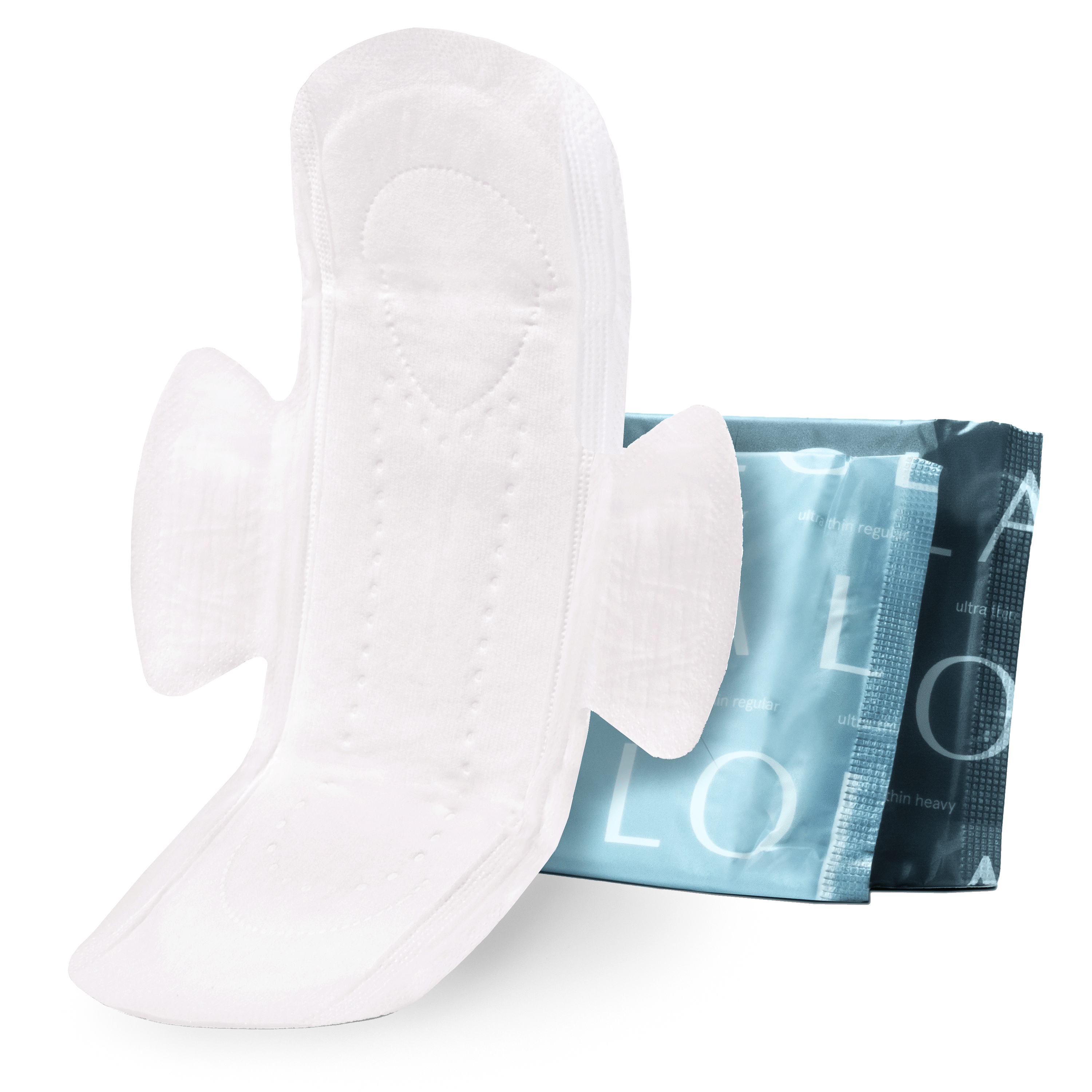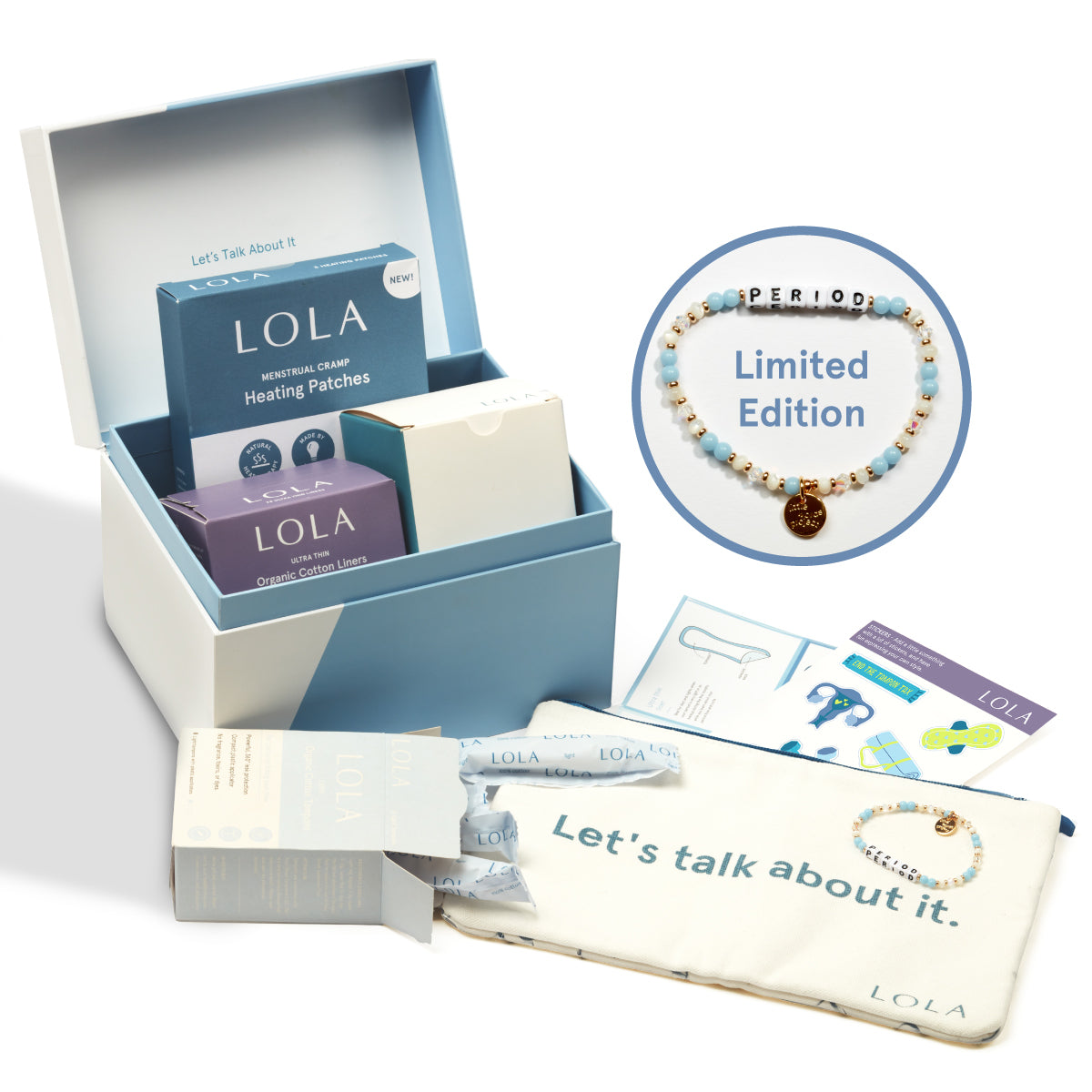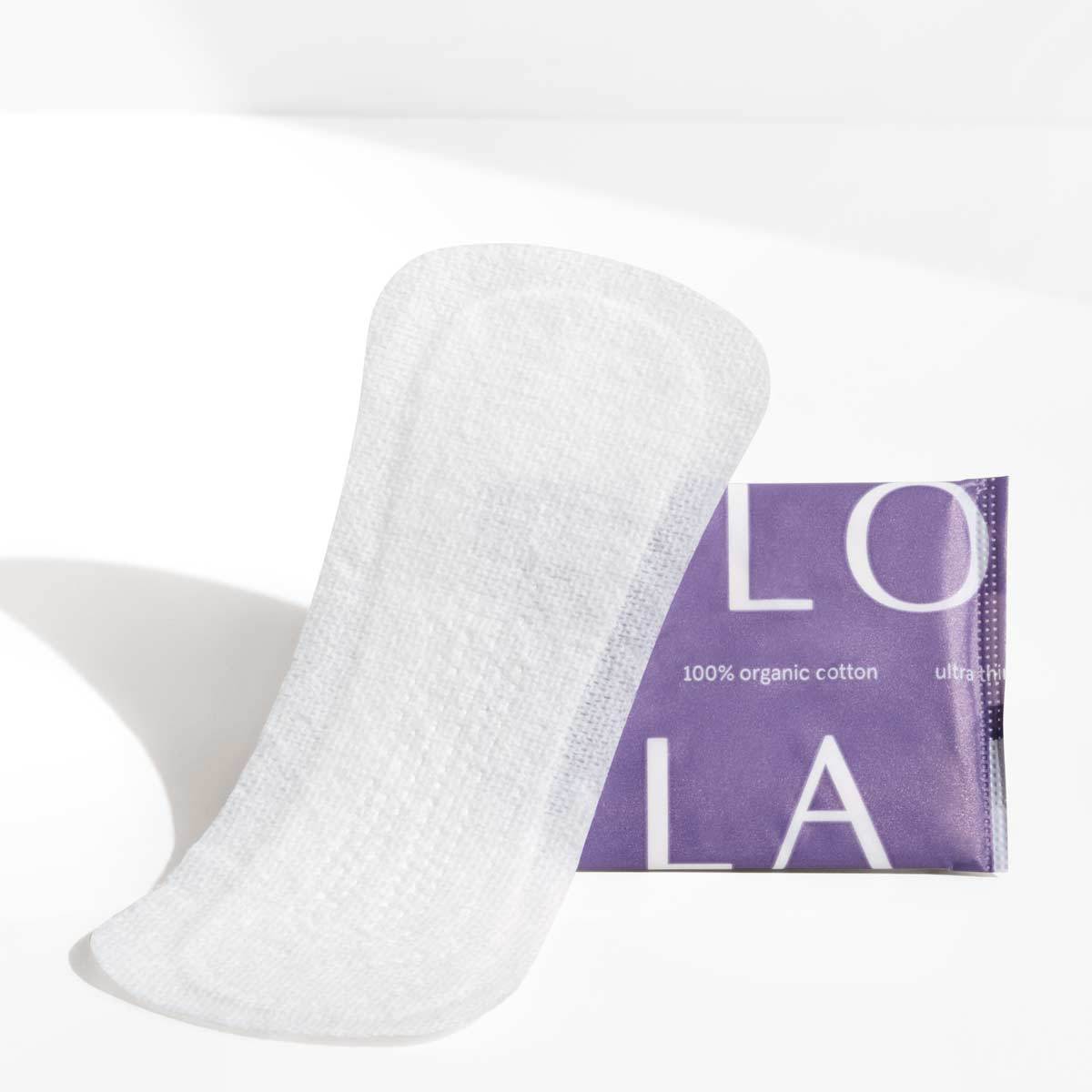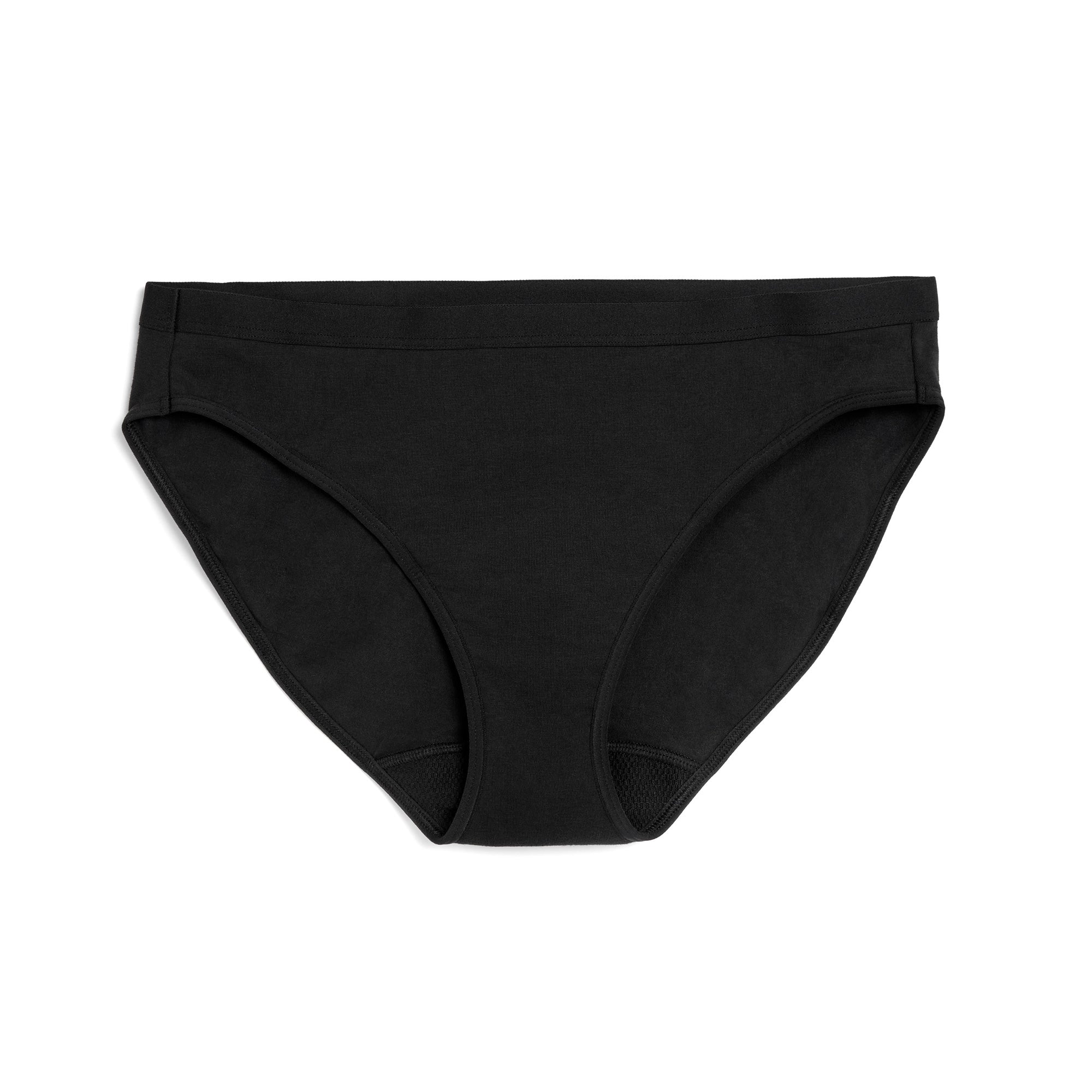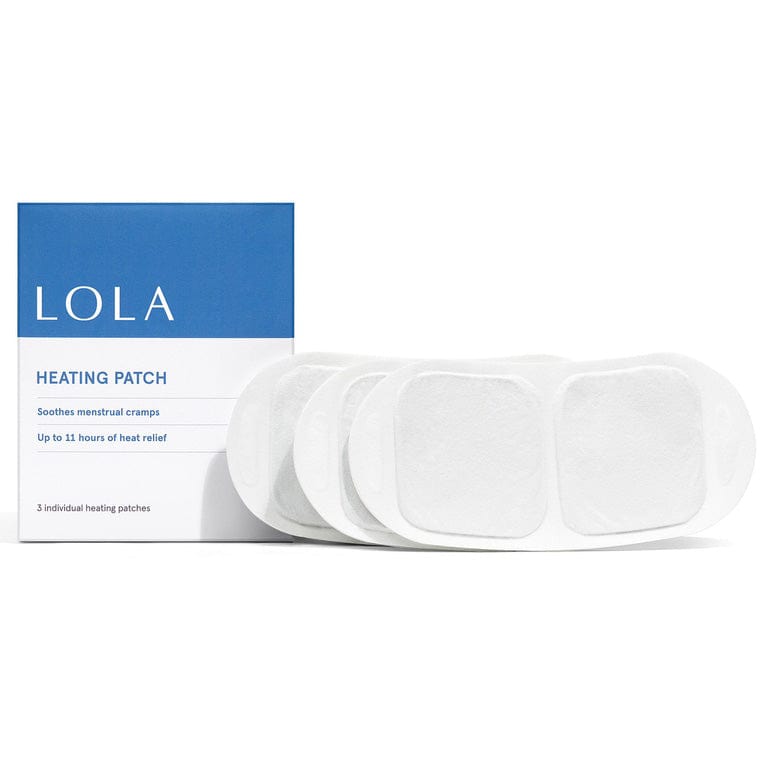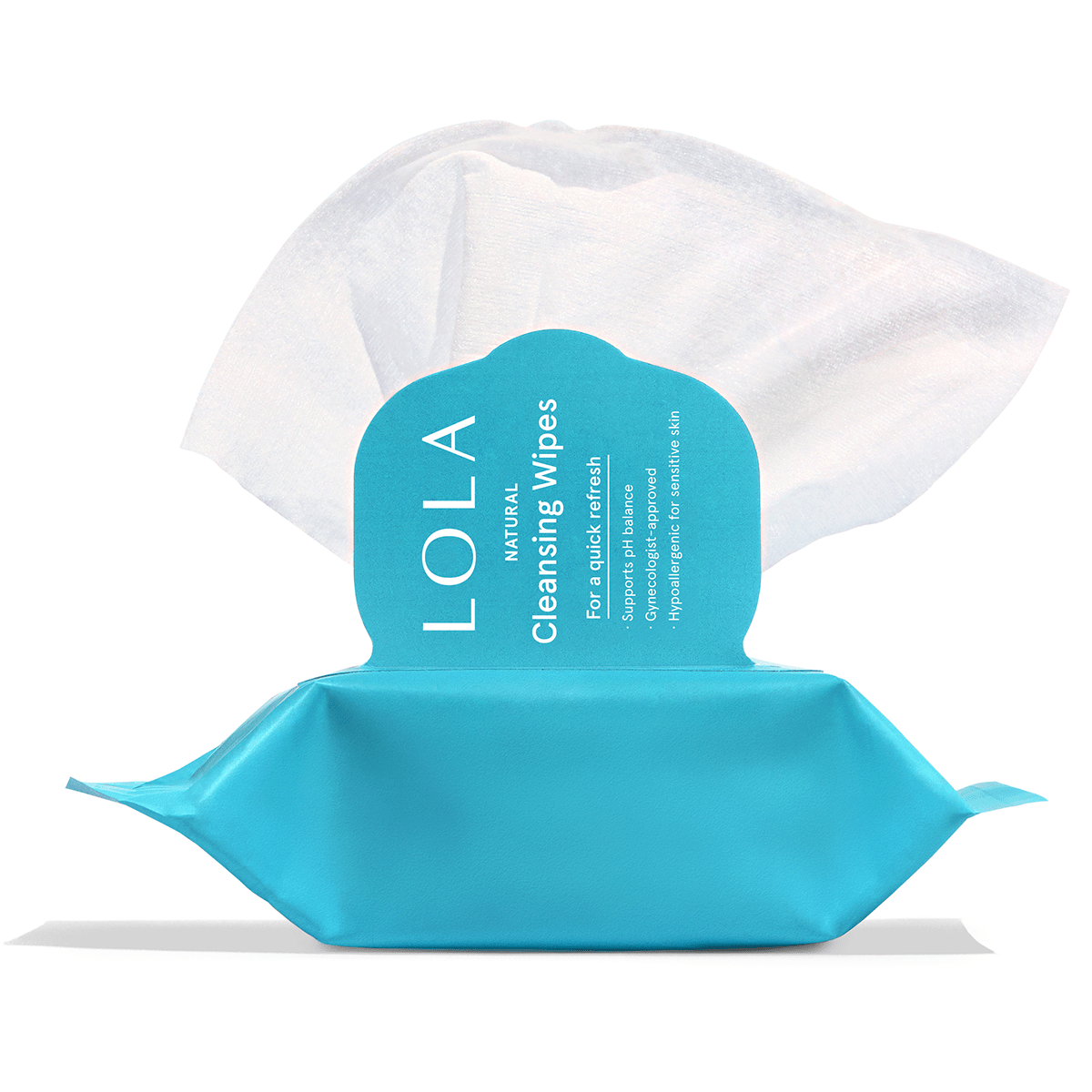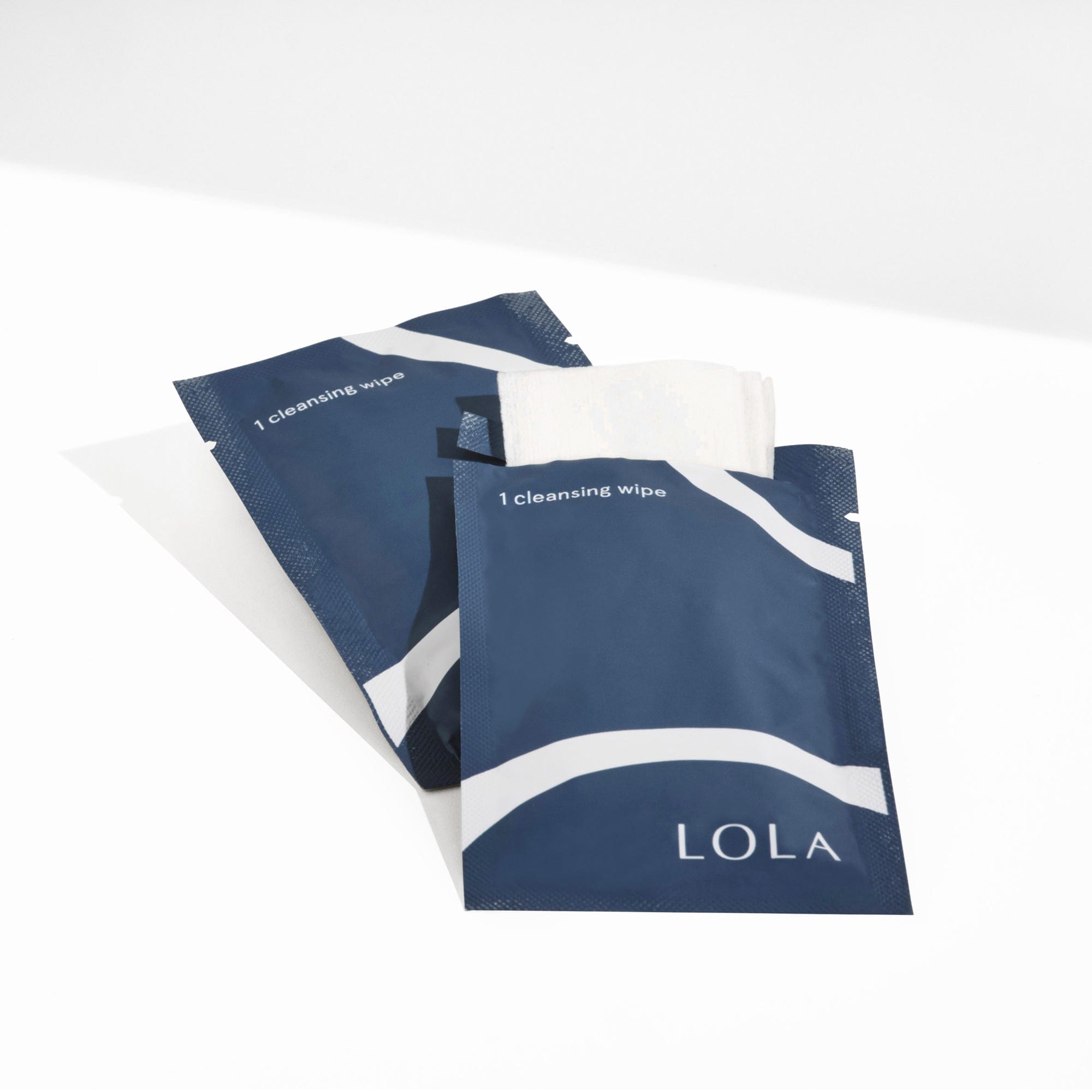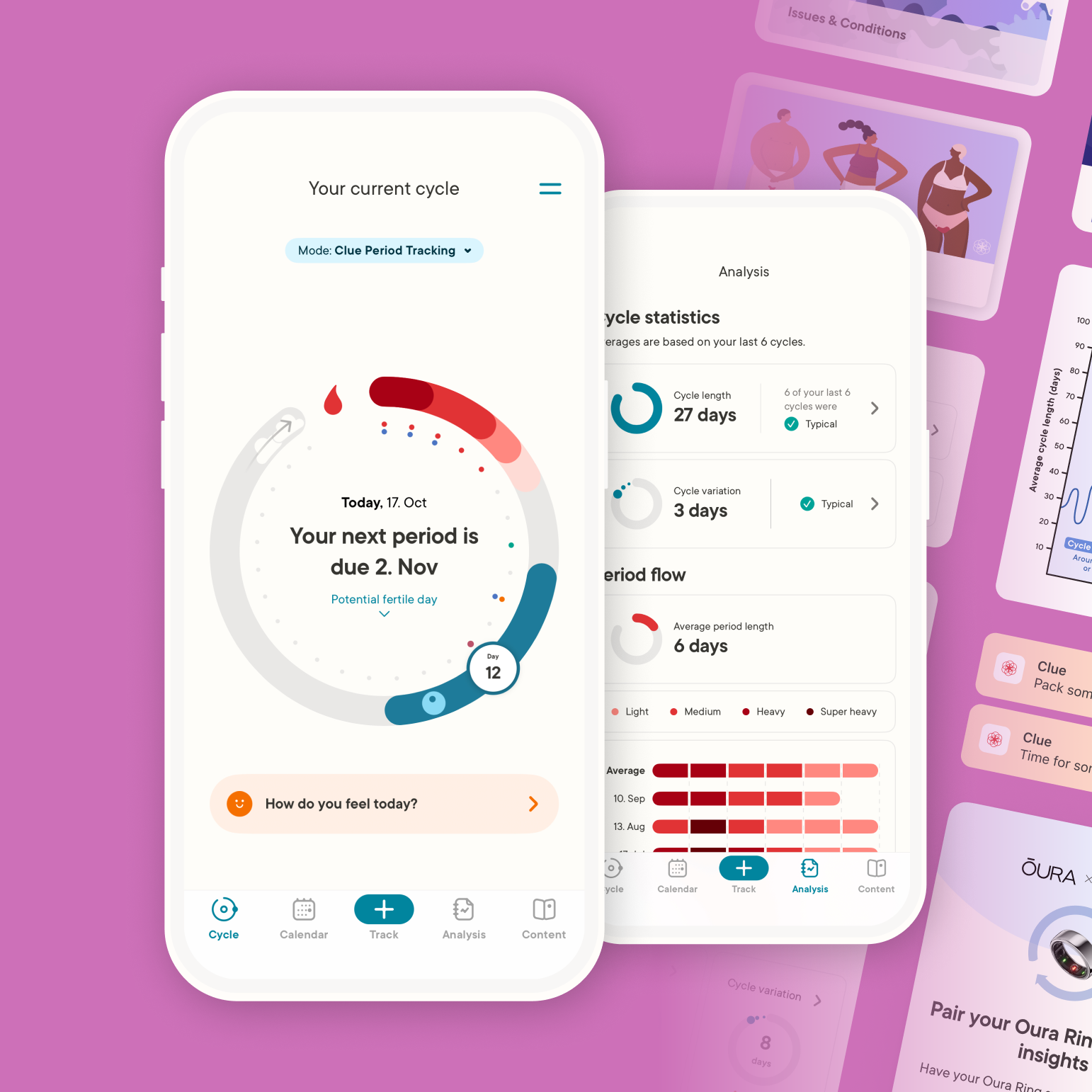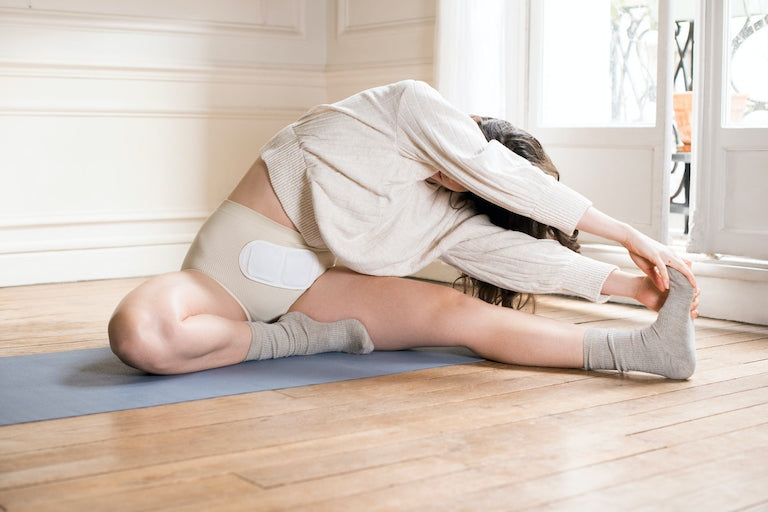For many menstruators, PMS (AKA premenstrual syndrome) is just a reality we've simply gotten used to each month. Whether your symptoms are physical, like abdominal cramps, bloating, or painful breasts; emotional, like irritability or sadness; or a combination of both, PMS can sometimes derail your entire day.
Thankfully, dealing with PMS is a little less painful (no pun intended) than it was even a few years ago. Today, there are many more options available, both in practice and in product form, to help people soothe PMS symptoms. We hope these tips will help you better manage those rollercoaster days leading up to your period.
Dealing with PMS: the physical
Growing up, menstruation education didn't always touch on how to deal with PMS other than maybe popping a few ibuprofen for cramps. Now that we're all older and wiser, we have some more remedies on hand for the next time those familiar aches and pains crop up:
Some type of over-the-counter actually could help. One of the most familiar PMS treatments for things like headaches, cramping, or painful breasts is taking pain relieving drugs like ibuprofen or acetaminophen.You can take them according to directions on the bottle for your cramps or breast aches, but if you'd rather reach for an alternative, there are also natural options for pain relief. Vitamins for PMS, or massaging on a topical essential oil blend or CBD balm to relieve those crampy spots, are all popular options for treating PMS naturally.
Get physical. There are few things in life that a little exercise can't help fix. Is your style to go for a brisk walk or take a virtual yoga class in your PJs? Either way, getting your blood flowing can both help with bloating and fatigue, and have emotional benefits (we'll touch on that below).
Apply some heat. Ahh, that's the stuff. Whether you have an electric heating pad, hot water bottle, or single-use heating patches, placing a little extra warmth on the area in question can provide some relief. Hot tip: LOLA's heating patch provides natural heat therapy for up to 11 hours. And, since it's discreet and easy to wear, you're free to move around as you please.
Hydrate, baby! This advice spans well beyond just your PMS window, but drinking a good amount of water will help with bloating.
Facemasks, pimple patches, spot treatments. The list goes on! Having an acne outbreak right before your period is totally normal. So while we say, "meh, just leave 'em be!" you might simply want it to go away. Your favorite pimple patches or sheet mask are a convenient option for soothing that skin.
Even if you aren't experiencing acne, some self-care in the form of a rose-scented face mask can do wonders for your PMS mental health.
How to handle PMS: the emotional
While the emotional symptoms of PMS have been thoroughly depicted in Hollywood, we think we speak for real humans everywhere by saying: actual PMS mood swings suck. They can make you focus on negative thoughts, have a blow-up over a seemingly small issue, or just feel generally blah.
Not every menstruator experiences this in the same way; some people's symptoms fluctuate month-to-month, and some don't get them at all. But if you're someone who sometimes wonders, "Why do I get so angry before my period?" keep reading for some helpful tips to keep your hormones at bay.
Rest up. Your body and mind need some R&R in order to restore. Aim for at least 8 hours of shut eye if you can. And if your cramps are also bothering you, try adding a little heat before you fall asleep for the night (it'll feel like a much-needed bear hug).
Get some fresh air. A lot of women say they feel some sort of PMS anxiety or depression. If you're feeling blue, try going outside for a long walk or a quick jog. The boost in endorphins can help reset your mind.
Make magnesium a priority. Magnesium has been shown to reduce PMS depression and stress in some women. But no need to run to the drugstore. You can find magnesium in a lot of foods you may already be eating: dark, leafy greens, salmon, avocados, and (our favorite option) dark chocolate.
Just take a minute (or ten). You may have heard of the health benefits of meditating. Good news: they also apply before and during your period! When you're feeling on the verge of a sobfest or just need a sec to cool off, find space to be by yourself. Open your favorite mindfulness app or close your eyes and breathe deeply.
For the in-between PMS symptoms (ahem, cravings)
Here's our hot take: if your pre-period week consists of going all in on a pint of chocolate chip cookie dough, maybe just embrace your PMS cravings and treat yourself. While we are 100% advocates of living your best life (which includes sticking to the diet that best serves you) cut yourself some slack if your hormones convince you to indulge in more chocolate than usual.
If you're looking for ways to satiate these cravings without feeling guilty, you can try reaching for craveable foods that aren't processed and lack refined carbohydrates or caffeine. Increasing your intake of fiber and protein can also stabilize your blood sugar and your hormone production.
But why is my PMS so bad?
"Some of the PMS-type symptoms are the result of a drop in hormones that cause the uterus to shed its lining," says Dr. Kelly Culwell, an OB-GYN and former medical officer at the World Health Organization. "You get a pretty big drop in both progesterone and estrogen, and that drop can cause a variety of different symptoms in different women."
But it's still a mystery why women respond the way they do to particular hormones. "We don't have that kind of advanced knowledge of how women respond individually to both internal hormones and external hormones," Dr. Culwell says. "And it's dramatic, the difference that women have. I don't even think there's anything you can necessarily predict by say, age or race."
However, researchers have isolated several factors that can influence PMS symptoms.
Stress
Higher levels of perceived stress in the month before your period can increase the severity of PMS symptoms. Certain stress reduction activities, such as massage therapy, meditation, and yoga, have all been shown to make women feel better.
Diet
A poor diet can exacerbate your period symptoms. For example, salty foods can increase bloating, foods high in sugar can lead to blood sugar fluctuations, and foods high in fat can increase prostaglandin levels and possibly menstrual cramps. A healthy diet has been shown to reduce PMS symptoms; women are encouraged to eat small, frequent meals, plenty of fruits and vegetables, and avoid caffeine, salt, sugar, and alcohol.
Exercise
The severity of PMS symptoms may also be influenced by how regularly women work out. Regular exercise can reduce symptoms of depression, anxiety, and fatigue, as well as control stress, which can make PMS worse.
Sleep
Poor sleep habits can also make PMS worse. Women are encouraged to monitor their sleep, and try to get at least eight hours a night. Regular sleep can also improve PMS-related symptoms of depression, anxiety, and moodiness.
Smoking
In a study of more than 9,000 women, former smokers were 33 percent more likely to have painful periods than non-smokers, and current smokers were 41 percent more likely to experience painful menstruation. Researchers believe this is because nicotine constricts the blood vessels and inhibits the flow of blood to the uterus.
Genetics
Five percent of women suffer from very severe symptoms, which can indicate premenstrual dysphoric disorder, or PMDD. New evidence suggests that women with PMDD have a different sensitivity to sex hormones released during their period based on their individual genetics.
Age
PMS symptoms can actually get worse as you reach your late 30s and 40s and approach menopause. Researchers believe this has do with the dramatic fluctuations in hormones that can occur during the perimenopause, or the time just before women start menopause.
Is there a cure for PMS?
We've covered different methods for dealing with PMS but does a true cure exist for premenstrual syndrome? Though you may have heard that you don't experience PMS on the pill, there's no real evidence to prove that. However, a lot of people do say their PMS on birth control can be a little milder than when off it.
While a PMS cure sounds like a dream, we haven't yet found one for these energy-draining symptoms. Until then, we hope these tried and true organic period care products and heating patches help you feel a little more like yourself when the time strikes.
